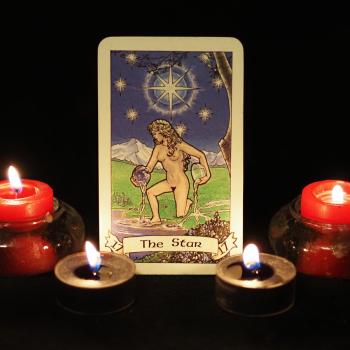Reading the homework for the Tower Time class is an experience all its own. Unlike my friends who are professional teachers, I don’t have to grade it. I have larger classes than they do, but I only have the one class, and not everybody turns in homework. But I read everything that gets turned in and do my best to offer constructive feedback.
And sometimes I learn something I wasn’t expecting.
Tower Time class participant and good friend Amy Gorniak included this line in her homework:
“I am having my illusions of safety in smallness challenged all the time.”
That’s something that needs to be shared, and not just among the class participants.
A lot of us like to play small. Well, we may not like to play small, but over the years we’ve learned that there is safety in blending in, keeping your head down, averting your eyes, and generally not calling attention to yourself. It’s a coping mechanism, one I’m all too familiar with.
We play small because it keeps us out of trouble, some of the time. But then when it doesn’t work we’re left facing something very big while we’re very small. Or at the least, smaller than we would otherwise be.
The fact is that playing small won’t keep you safe.
Sadly, the broom closet is still sometimes necessary
Religious prejudice and discrimination are very real. Most large corporations have policies against it, but enforcement is uneven at best. Smaller businesses often flaunt their religious exclusivity. If your boss is an intolerant follower of any religion, even a good HR department may not be able to save you.
And if you’re living with intolerant family members – especially if you’re dependent on them for financial support – you may have a very difficult time openly practicing Paganism, magic, witchcraft, or anything of the sort.
Sometimes the broom closet is still necessary. Do what you have to do to protect yourself – live to fight another day.
But hiding your practices from the intolerant doesn’t necessarily mean you have to keep them small – you can do deep devotions and magical workings in private. And likewise, proclaiming your Pagan-ness at the top of your lungs doesn’t mean your practice is large – it just means it’s loud.
The fear of failure… and the fear of success
I remember the day I led a public Pagan ritual for the first time. I was concerned I would flub my lines or set myself on fire, but my biggest fear was that nothing would happen.
My second biggest fear was that something would happen.
There’s a meme I see occasionally that says “if people tell you they don’t believe in witchcraft, ask them for a lock of their hair.” Only the most hardcore skeptics will do this. Why? Humans have an intuitive belief in magic. Children know magic is real – it has to be educated (and often, shamed) out of them.
Most spells that fail simply don’t work – nothing happens. But there’s a chance something will happen that wasn’t what you wanted. There’s another meme about a magician whose bad penmanship caused him to summon a lemon instead of a demon. The opposite could happen too.
You don’t have to be around magic for long to figure out that it often works in perverse ways – you get what you asked for, but in a way you didn’t want.
Some people try to guard against that by wrapping their spells in disclaimers: “for the good of all with harm to none.” In my experience, all that does is put a damper on your spells.
The number one reason people are afraid of magical success is in the very definition of magic: “the art and science of creating change in accordance with will.” If your spell works, it will bring change into your life. You will then have to adjust to that change – and too many people prefer to suffer in familiarity rather than risk having to learn something new and different.
Magic is not safe
That said, magic is not safe. Magic can create small changes, and it can create huge changes. Magic is stealing fire from the Gods.
Grimoire magic is still rather popular these days. I do very little of it, in part because my interests lie elsewhere but mainly because the vast majority of grimoires are grounded in a Christian worldview, and I needed to make a clean break with Christianity. Yes, I know – the roots of grimoire magic are far older than Christianity. But the workings in them are decidedly Christian.
The core idea of grimoire magic is to summon demons and other spiritual beings to do work for you. Inscribed magic circles and triangles notwithstanding, that’s a very dangerous thing to do.
Now, the story of demons has been written by their enemies. Further, the vast majority of that story is mythical, not historical. The fact that some grimoire magicians get good results and don’t reek of brimstone tells us that many of our fears about demons are probably overblown.
Still, our ancestors who wrote these books weren’t fools. Dealing with demons is inherently dangerous. For that matter, dealing with any autonomous being with a mind and a will of their own is dangerous – that includes our fellow humans.
“Dabbling” in magic is OK for beginners – it’s almost unavoidable. You’ll likely burn your fingers in the process (I certainly did), but that’s part of learning too. But before too long, we need to either decide magic isn’t for us and move on to something else, or we need to commit to studying and practicing until we’re skilled enough to do what we want to do with a reasonable likelihood of success.
Safety – such as it is – comes with knowledge and skill, not from playing small.
Getting their attention
Magic, dealings with Gods, spiritual work in general – it’s all like a pool where you can’t see the bottom. You step out into the shallow end and it’s only knee-deep. So you take another step or two, and you’re still good – you like this. You look farther out and you see people doing just fine, but you can’t tell if they’re standing or swimming. And you never know if your next step will be on good footing or if it will take you into water over your head.
Working magic gets their attention. So does devotion and prayer. There’s no guarantee They’ll answer, but in my experience, if you pray sincerely (i.e. – if you mean it, not as a joke) They will, sooner or later.
That answer may not be in the form you expected. Or that you wanted.
I know people who avoid the Morrigan because they know She’s a demanding Goddess who often gives Her followers difficult and sometimes dangerous assignments. I get that. If you don’t want to do the work, you shouldn’t apply for the job. There are plenty of other deities whose requirements are usually less challenging.
Most of the time.
Well, some of the time.
Or at least, occasionally.
Brighid is often compassionate and gentle. But She is also a Goddess of the Forge, and you can find yourself on Her anvil being hammered into something new.
The best magic and the real spiritual growth aren’t in the shallow end of the pool. They’re somewhere out in the open sea. Learn to swim. Learn to sail. Learn to navigate open waters. Those skills will get you there and back, with tales to tell.
Staying in the shallow end of the pool won’t.
Study and practice
Playing small won’t keep you safe. Building skills and gaining knowledge will. Building respectful, reciprocal relationships will.
So study and practice. Work magic on a regular basis. Pick a system and get good with it. If the one you pick doesn’t seem to fit you, try another one.
Take your devotional practice deeper with regular prayers and offerings, reading and study, and contemplative meditation. Who calls to you? Whose values and virtues appeal to you? Answering a call is a good thing – so is pursuing the Gods.
Build relationships and community. No matter how strong and skilled you become, there will always be times when you encounter something bigger than yourself. There is no substitute for having friends and co-religionists you can call for assistance, or just to talk something through.
Playing small won’t keep you safe.
Learning and growing will.



















